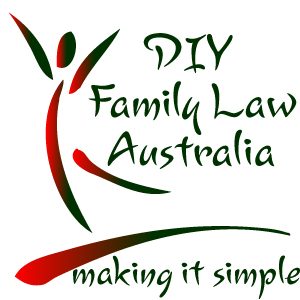
When do Courts make Orders for Costs in Family Court & Federal Circuit Court
The relevant provision in the Family Law Act, relating to legal costs, is section 117.
Section 117(1), abolishes, for the purposes of Family Law Act matters, the general rule that in civil proceedings, an order for payment of legal costs ‘follows the event’.
‘Follows the event’ means the usual position in civil proceedings (not criminal proceedings) that a costs order is usually made in favour of the successful party, against the unsuccessful party.
This has the effect that an order for a person to pay the other party’sLegal Costs is not frequently made in Family Law Matters.
The Court can however, in appropriate cases, make an Order that one party pay the Legal Costs of the other party.
Section 117(2) gives the court a general discretion to make costs orders, if it is of the opinion that there are circumstances that justify it doing so.
The court may make whatever order for costs it “considers to be just”.
What things must a Court look at when deciding if it should make a Costs Order
Section 117(2)(A) sets out the matters that the court shall have regard to in exercising this discretion, those matters including:
- the financial circumstances of the parties concerned;
- the receipt of legal aid by the parties;
- the conduct of the parties to the proceedings;
- whether the proceedings were necessitated by the failure of a party to comply with previous court orders;
- whether one of the parties to the proceedings have been wholly unsuccessful in them;
- any offers to settle the proceedings;
- and any other relevant matter.
If a Court makes a Costs Order, how much will they Order to be paid
The court has a wide discretion as to the calculation of costs.
Rule 21.02(2) of the Federal Circuit Court Rules says:
“In making an order for costs in a proceeding the Court may:
(a) set the amount of costs; or
(b) set the method by which the costs be calculated; or
(c) refer the costs for taxation under Part 40 of the Federal Court Rules or under Chapter 19 of the Family Law Rules; or
(d) set a time for payment of costs which may be before the proceedings is concluded.”
Examples of cases where costs have been ordered might include:
- when a party appeals a Federal Circuit Court decision to the Family Court of Australia and is wholly unsuccessful – ie. completely loses their appeal;
- if they Contravene a Court Order without reasonable excuse, or they make a Contravention Application which fails because they knew the other parent had good reason for breaching the Orders;
- if a party is completely successful in their Application and the circumstances of the other party made their position completely unreasonable – for example when a father sought repayment of Child Support and the other party resisted the Application when they full well knew the Applicant was not the Father of the Child.
In such cases, Courts might order a fixed amount (for example $5,000.00 or more, or less) or for the Legal Costs incurred to be assessed under the Court Rules.
You can read some actual cases where the Court considered ordering costs and see how much was ordered.
Connect with us on Facebook

Other Pages in the How to Represent Yourself Section
- Tips & Traps: Secrets from the Legal Experts
- How to Prepare a Good Family Court Affidavit
- Affidavits: Different Types & their Uses
- Attaching Documents to Affidavits
- Do You Swear or Affirm an Affidavit
- Changing a Final Parenting Order: If other party agrees
- Changing a Final Parenting Order: If other party does not agree
- When is a Court Order Breached (contravened)
- Can you have an excuse for breaching (contravening) a Court Order
- What happens if you prove (contravene) a Court Order
- How do you prove a breach (contravention) of a Court Order
- How do I make a Contravention Application
- The Basics you need to know about Consent Orders


